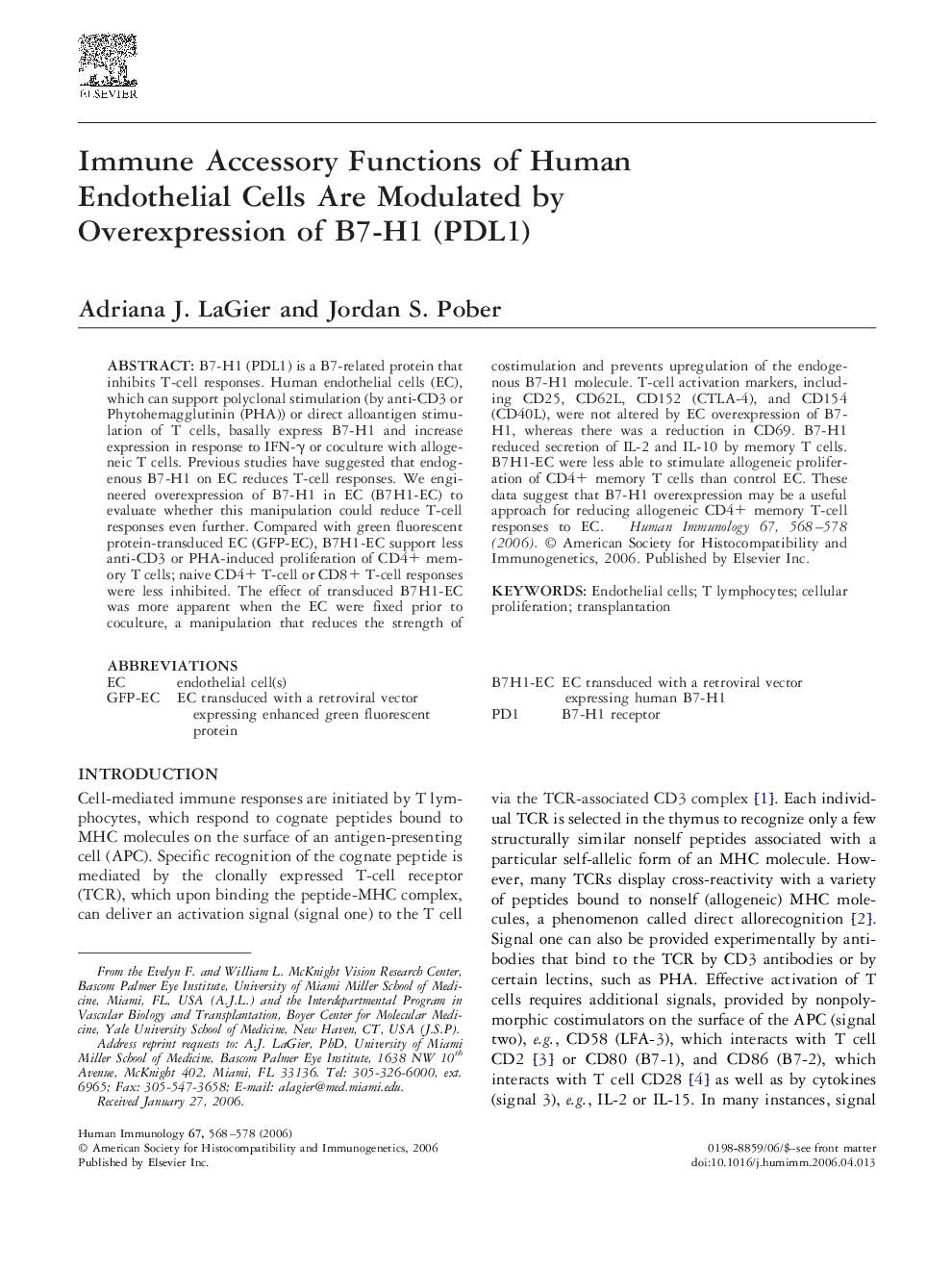| کد مقاله | کد نشریه | سال انتشار | مقاله انگلیسی | نسخه تمام متن |
|---|---|---|---|---|
| 3352261 | 1216468 | 2006 | 11 صفحه PDF | دانلود رایگان |

B7-H1 (PDL1) is a B7-related protein that inhibits T-cell responses. Human endothelial cells (EC), which can support polyclonal stimulation (by anti-CD3 or Phytohemagglutinin (PHA)) or direct alloantigen stimulation of T cells, basally express B7-H1 and increase expression in response to IFN-γ or coculture with allogeneic T cells. Previous studies have suggested that endogenous B7-H1 on EC reduces T-cell responses. We engineered overexpression of B7-H1 in EC (B7H1-EC) to evaluate whether this manipulation could reduce T-cell responses even further. Compared with green fluorescent protein-transduced EC (GFP-EC), B7H1-EC support less anti-CD3 or PHA-induced proliferation of CD4+ memory T cells; naive CD4+ T-cell or CD8+ T-cell responses were less inhibited. The effect of transduced B7H1-EC was more apparent when the EC were fixed prior to coculture, a manipulation that reduces the strength of costimulation and prevents upregulation of the endogenous B7-H1 molecule. T-cell activation markers, including CD25, CD62L, CD152 (CTLA-4), and CD154 (CD40L), were not altered by EC overexpression of B7-H1, whereas there was a reduction in CD69. B7-H1 reduced secretion of IL-2 and IL-10 by memory T cells. B7H1-EC were less able to stimulate allogeneic proliferation of CD4+ memory T cells than control EC. These data suggest that B7-H1 overexpression may be a useful approach for reducing allogeneic CD4+ memory T-cell responses to EC.
Journal: Human Immunology - Volume 67, Issue 8, August 2006, Pages 568–578